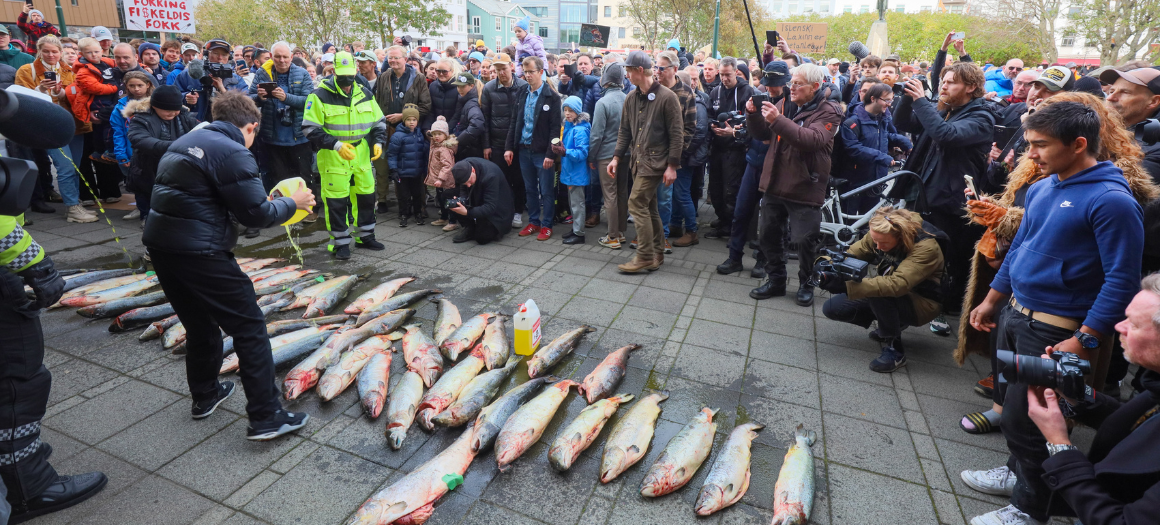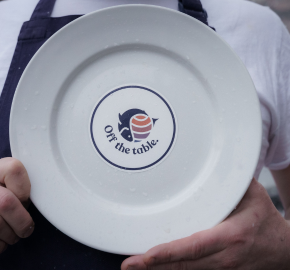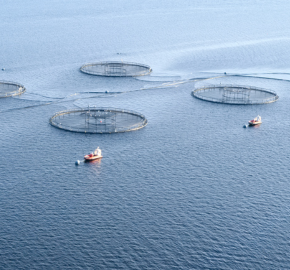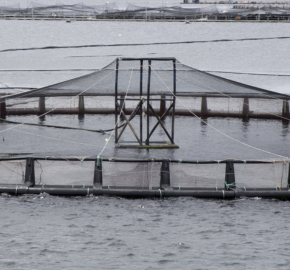Lessons from Iceland

We’ve been watching recent events unfolding in Iceland with a mixture of hope, optimism – and despair at our own situation southeast across the Atlantic.
In August, an open-net salmon farm in Iceland’s Westfjords, run by Mowi-owned Arctic Fish, reported a mass escape of farmed salmon from one of its pens. When farmed fish interbreed with wild salmon, they create genetically inferior fish which are less likely to survive in the wild. The impacts are serious and can cause lasting damage to wild salmon populations.
The costly mistake has been met with swift action
News of the escape was met with outrage by Icelandic NGOs, including the Icelandic Wildlife Trust (IWF) and North Atlantic Salmon Foundation (NASF) Iceland. A protest in the capital Reykjavík was reportedly attended by 1% of the country’s entire population. The Icelandic singer Björk has announced that she will be releasing a song with fellow musician Rosalía, to raise funds for those campaigning against open-net salmon farming in Iceland.
It’s been estimated that the escape was around 3,500 fish. Within a month, it was reported that the Iceland government had announced a temporary halt to issuing new licences for open-net fish farms in the country.
The desperate and contrasting situation in Scotland
Contrast this with Scotland, where Scottish Government comments on salmon farming sound more akin to those in a PR brochure for the industry, than representative of an independent law-making and regulating body.
Take, for instance, the recent news that the Scottish salmon farming industry production dropped by almost 20% between 2021 and 2022. In response, the Cabinet Secretary for Rural Affairs, Land Reform and Islands praised the industry for “responding to environmental and biological challenges and pressures”, glossing over entirely the ongoing escalating level of mortalities from disease and parasites on Scottish salmon farms.
The Cabinet Secretary also ignored the fact that, according to industry-published data, 52,463 farmed salmon escaped in 2022 from farms in the west Highlands and Islands and the northern isles; 15 times more than the Iceland escape. In 2021, the Scottish Government’s own study found that almost one quarter of wild salmon sampled from the west Highlands and Islands showed signs of introgression (not including second-generation offspring). In addition to the negative genetic effects of inter-breeding between farmed and wild Atlantic salmon, escaped farm salmon also compete with wild Atlantic salmon for resources – further negatively impacting on wild salmon populations.
Scottish Government plan for dealing with escapes is laughable
The Scottish Government’s Wild Salmon Strategy implementation plan is almost laughably weak on the topic of escapes. While Norway, Iceland and Chile already have regulation in place to penalise companies for escaped salmon, the Scottish Government’s plan vaguely alludes to “[Strengthening] controls to reduce farmed fish escapes and [exploring] the introduction of penalties”, with no timeline for implementation.
For now, it seems even imposing fines on this multimillion-pound industry for riding roughshod over our natural assets is too much for the Scottish Government to contemplate – let alone halting the expansion of the industry, as has been seen in Iceland and other countries around the world.
This is despite the fact that two independent inquiries conducted by the Scottish Parliament concluded in 2018 that the “status quo is not an option”, and that industry expansion should not continue in Scotland until the associated environmental and welfare issues were addressed.
The Scottish Government must wake up to the dangers
Permits for new farms have slowed in Scotland – but this is more the reflection of growing discontent at the community level, than any form of environmental conscience coming from above. In fact, the Scottish Government’s plans to ‘streamline’ the consenting process for new farms runs the risk of effectively leapfrogging over community objections. Tellingly, there is not one community representative on the Scottish Government’s Aquaculture Council.
From escaped farmed fish, to mortalities, to sea lice – 2023 has not been a kind year to open-net salmon farms, including those in Scotland. As the rest of the world wakes up to the environmental and welfare disasters of open-net salmon farming, the Scottish Government is seemingly becoming ever-more entrenched in its blinkered support for an inherently unsustainable industry.
The latest from Iceland
Back in Iceland, earlier this month footage emerged from another open-net salmon farm, also in the Westfjord region, which showed fish being eaten alive by sea lice. This has resulted in premature slaughtering of the salmon, which are no longer suitable for human consumption, by Mowi’s Arctic Fish and another company, Arnalax.
The Icelandic government is currently finalising a new legal framework for the industry, and the fight is far from over. We will continue to support our allies in Iceland in the coming weeks and months, while hoping that in due course the winds of change reach our beleaguered shores.
In the meantime, we will continue to raise the alarm about the realities of open-net salmon farming – including via routes such as the Competition and Markets Authority (CMA), to whom WildFish and Coastal Communities Network Scotland (CCN) submitted a comprehensive legal complaint over industry greenwashing last month. You can read more about that here.



